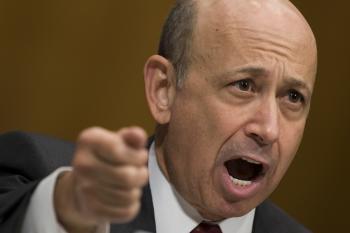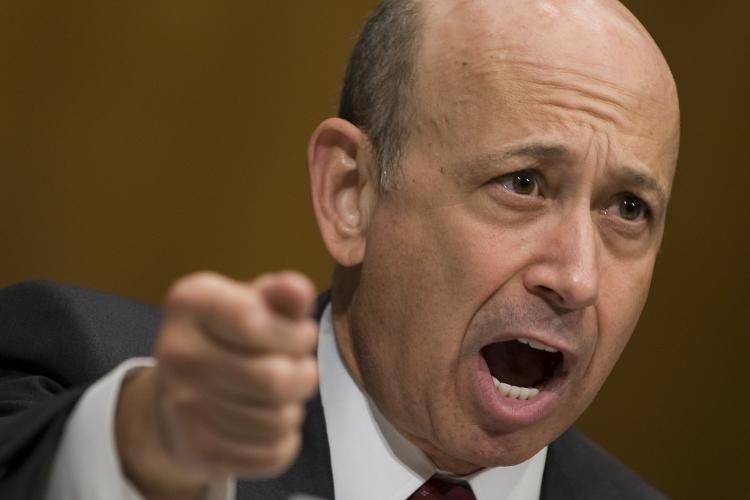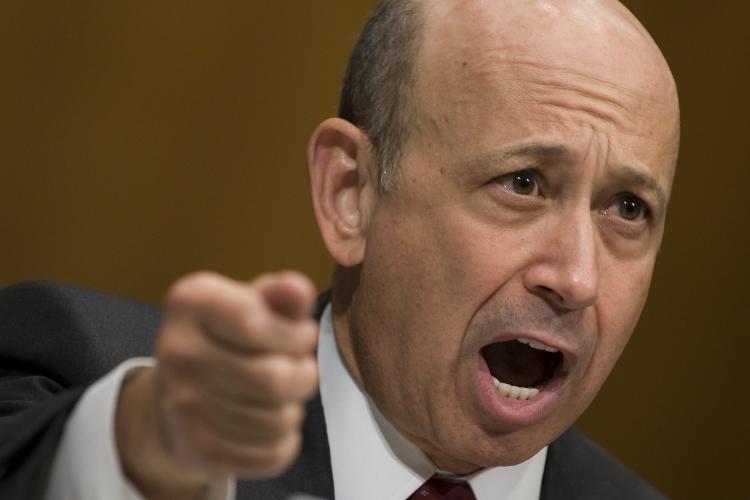Once upon a time, the U.S. Securities and Exchange Commission (SEC) was accused of being soft on greedy Wall Street offenders. But today, the SEC is more vigilant in going after large global firms and taking them to task.
On July 27, the SEC accused several of General Electric Co.’s (GE) foreign subsidiaries with contravening the U.S. Foreign Corrupt Practices Act of 1977 (FCPA) between the years 2000 and 2003.
The SEC’s regulatory arm stretches far. “This case affirms that law enforcement is active across the globe—offshore does not mean off-limits,” said Robert Khuzami, enforcement director at the SEC, in a statement.
GE neither acknowledged nor refuted the SEC allegations and agreed to pay a $23.4 million fine.
The FCPA covers accounting and record-keeping practices/transparency and prohibits the bribing of foreign officials by companies listed on U.S. stock exchanges.
GE and Iraqi government entities took part in a $3.6 million bribery plot with GE winning lucrative water-purification and medical equipment contracts in the nation. The alleged kickback consisted of cash, computers, medical supplies, and equipment.
“GE failed to maintain adequate internal controls to detect and prevent these illicit payments by its two subsidiaries to win Oil for Food contracts, and it failed to properly record the true nature of the payments in its accounting records,” said Cheryl J. Scarboro, head of the SEC’s FCPA Unit, in a recent statement.
Accounting Issues at Dell
In a July 22 general civil complaint, the SEC accused Michael Dell, chairman of computer giant Dell Inc., and several of the company’s former executives—including Kevin Rollins, James Schneider, Leslie Jackson and Nicholas Dunning—of committing accounting and disclosure violations.
Before 2008, Dell did not disclose in its public annual reports that it received nonoperational income from Intel Corp. Dell and Intel embarked upon anticompetitive behavior as Dell received large sums of money from Intel for not using computer chips from Intel’s main competitor, Advanced Micro Devices Inc. (AMD).
“Dell manipulated its accounting over an extended period to project financial results that the company wished it had achieved, but could not. Dell was only able to meet Wall Street targets consistently during this period by breaking the rules,” said Christopher Conte, associate director of enforcement at the SEC.
Michael Dell remained silent when advising investors about a significant decrease in operating revenue. He advised investors during the second quarter 2007 earnings call that the reduction was due to the economic crisis, while in actuality, it was due to the fact that Intel reduced its payments to Dell after the company announced that it would install AMD processors in some products.
“The financial results that public companies communicate to the investing public must reflect reality,” informed Conte in the SEC press release.
Dell neither acknowledged nor refuted the SEC allegations and accepted a $100 million fine, which is a mere 7 percent of its 2010 fiscal year-end earnings at $1.4 billion and less than 1 percent of its revenues, which was at $52.9 billion.
The question remains—why did PricewaterhouseCoopers, the firm’s external auditor, not discover the fraudulent accounting and disclosure practices? Large international auditing firms have in the past been charged with doing substandard work and not fulfilling their fiduciary responsibility to the public relying on their audits.
“Although external auditors are contractually obligated to the corporation retaining their services, they also hold a fiduciary responsibility to the shareholders, creditors, investors, and other third-party users of audited financial statements ... members of the investing public who rely on negligently audited financial statements to their detriment can sue the responsible external auditor for recovery of their losses,” according to a 2004 article on the Bnet website discussing the U.S. corporate audit function.
Goldman Fined
In July, Goldman, Sachs & Co., the U.S. broker-dealer for the Goldman Sachs Group Inc., agreed to pay a civil penalty of $550 million, the largest fine the SEC ever imposed on a Wall Street company. At the same time, the firm agreed to put an end to certain business practices and transparency issues.
It is important to note that $250 million of the fine was earmarked for investors defrauded by Goldman’s actions. The remainder will be paid into a U.S. Treasury account.
“This settlement is a stark lesson to Wall Street firms that no product is too complex, and no investor too sophisticated, to avoid a heavy price if a firm violates the fundamental principles of honest treatment and fair dealing,” Khuzami said in a news conference.
The world had first heard of Goldman withholding vital information concerning bundled subprime mortgage investments, known as ABACUS 2007 AC1, in April. Although the firm agreed to pay for misleading investors, it, just as Dell, neither acknowledged nor refuted the SEC allegations.
Despite this large fine, Goldman is not off the hook for anything that may yet come to light through other SEC investigations.
Also, Goldman was advised that if it does not adhere to the decision as set forth by the court, then it would be fined above and beyond the $550 million. Furthermore, the firm was restrained from contending that it wasn’t in violation of U.S. securities laws and that it may not file an appeal.
Goldman consented “not to take any action or to make or permit to be made any public statement denying, directly or indirectly, any allegation in the complaint or creating the impression that the complaint is without factual basis,” according to the consent agreement.
On July 27, the SEC accused several of General Electric Co.’s (GE) foreign subsidiaries with contravening the U.S. Foreign Corrupt Practices Act of 1977 (FCPA) between the years 2000 and 2003.
The SEC’s regulatory arm stretches far. “This case affirms that law enforcement is active across the globe—offshore does not mean off-limits,” said Robert Khuzami, enforcement director at the SEC, in a statement.
GE neither acknowledged nor refuted the SEC allegations and agreed to pay a $23.4 million fine.
The FCPA covers accounting and record-keeping practices/transparency and prohibits the bribing of foreign officials by companies listed on U.S. stock exchanges.
GE and Iraqi government entities took part in a $3.6 million bribery plot with GE winning lucrative water-purification and medical equipment contracts in the nation. The alleged kickback consisted of cash, computers, medical supplies, and equipment.
“GE failed to maintain adequate internal controls to detect and prevent these illicit payments by its two subsidiaries to win Oil for Food contracts, and it failed to properly record the true nature of the payments in its accounting records,” said Cheryl J. Scarboro, head of the SEC’s FCPA Unit, in a recent statement.
Accounting Issues at Dell
In a July 22 general civil complaint, the SEC accused Michael Dell, chairman of computer giant Dell Inc., and several of the company’s former executives—including Kevin Rollins, James Schneider, Leslie Jackson and Nicholas Dunning—of committing accounting and disclosure violations.
Before 2008, Dell did not disclose in its public annual reports that it received nonoperational income from Intel Corp. Dell and Intel embarked upon anticompetitive behavior as Dell received large sums of money from Intel for not using computer chips from Intel’s main competitor, Advanced Micro Devices Inc. (AMD).
“Dell manipulated its accounting over an extended period to project financial results that the company wished it had achieved, but could not. Dell was only able to meet Wall Street targets consistently during this period by breaking the rules,” said Christopher Conte, associate director of enforcement at the SEC.
Michael Dell remained silent when advising investors about a significant decrease in operating revenue. He advised investors during the second quarter 2007 earnings call that the reduction was due to the economic crisis, while in actuality, it was due to the fact that Intel reduced its payments to Dell after the company announced that it would install AMD processors in some products.
“The financial results that public companies communicate to the investing public must reflect reality,” informed Conte in the SEC press release.
Dell neither acknowledged nor refuted the SEC allegations and accepted a $100 million fine, which is a mere 7 percent of its 2010 fiscal year-end earnings at $1.4 billion and less than 1 percent of its revenues, which was at $52.9 billion.
The question remains—why did PricewaterhouseCoopers, the firm’s external auditor, not discover the fraudulent accounting and disclosure practices? Large international auditing firms have in the past been charged with doing substandard work and not fulfilling their fiduciary responsibility to the public relying on their audits.
“Although external auditors are contractually obligated to the corporation retaining their services, they also hold a fiduciary responsibility to the shareholders, creditors, investors, and other third-party users of audited financial statements ... members of the investing public who rely on negligently audited financial statements to their detriment can sue the responsible external auditor for recovery of their losses,” according to a 2004 article on the Bnet website discussing the U.S. corporate audit function.
Goldman Fined
In July, Goldman, Sachs & Co., the U.S. broker-dealer for the Goldman Sachs Group Inc., agreed to pay a civil penalty of $550 million, the largest fine the SEC ever imposed on a Wall Street company. At the same time, the firm agreed to put an end to certain business practices and transparency issues.
It is important to note that $250 million of the fine was earmarked for investors defrauded by Goldman’s actions. The remainder will be paid into a U.S. Treasury account.
“This settlement is a stark lesson to Wall Street firms that no product is too complex, and no investor too sophisticated, to avoid a heavy price if a firm violates the fundamental principles of honest treatment and fair dealing,” Khuzami said in a news conference.
The world had first heard of Goldman withholding vital information concerning bundled subprime mortgage investments, known as ABACUS 2007 AC1, in April. Although the firm agreed to pay for misleading investors, it, just as Dell, neither acknowledged nor refuted the SEC allegations.
Despite this large fine, Goldman is not off the hook for anything that may yet come to light through other SEC investigations.
Also, Goldman was advised that if it does not adhere to the decision as set forth by the court, then it would be fined above and beyond the $550 million. Furthermore, the firm was restrained from contending that it wasn’t in violation of U.S. securities laws and that it may not file an appeal.
Goldman consented “not to take any action or to make or permit to be made any public statement denying, directly or indirectly, any allegation in the complaint or creating the impression that the complaint is without factual basis,” according to the consent agreement.






